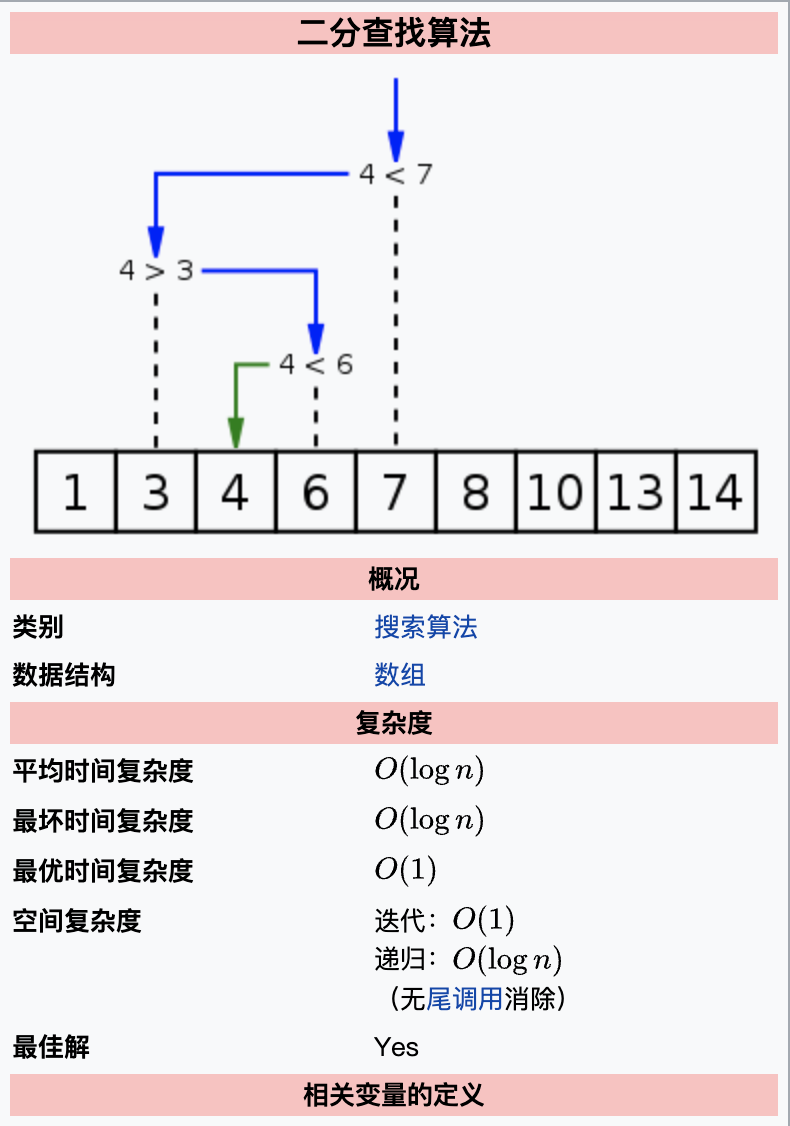# baseSortedIndex
# Description
baseSortedIndex 的作用和 baseSortedIndexBy 的作用差不多, 缺少了 iteratee 函数
# Params
(array, value, retHighest)
# Return
Number
# Depend
import baseSortedIndexBy from './baseSortedIndexBy.js'
import isSymbol from '../isSymbol.js'
# Code
/** Used as references for the maximum length and index of an array. */
const MAX_ARRAY_LENGTH = 4294967295
const HALF_MAX_ARRAY_LENGTH = MAX_ARRAY_LENGTH >>> 1
function baseSortedIndex(array, value, retHighest) {
let low = 0
let high = array == null ? low : array.length
if (typeof value === 'number' && value === value && high <= HALF_MAX_ARRAY_LENGTH) {
while (low < high) {
const mid = (low + high) >>> 1
const computed = array[mid]
if (computed !== null && !isSymbol(computed) &&
(retHighest ? (computed <= value) : (computed < value))) {
low = mid + 1
} else {
high = mid
}
}
return high
}
return baseSortedIndexBy(array, value, (value) => value, retHighest)
}
# Analyze
其实如果去掉中间的 if 判断,就和 baseSortedIndexBy 基本一致了,调用的也是 baseSortedIndexBy 方法,所以我们具体看看中间的 if 判断做了什么事情
中间的 if 判断也是使用二分法来确定元素的索引
if (typeof value === 'number' && value === value && high <= HALF_MAX_ARRAY_LENGTH) {
while (low < high) {
const mid = (low + high) >>> 1
const computed = array[mid]
if (computed !== null && !isSymbol(computed) &&
(retHighest ? (computed <= value) : (computed < value))) {
low = mid + 1
} else {
high = mid
}
}
return high
}
可以看到条件是 value 为 number 类型,value 不是 NaN , 并且数组的长度小于等于 数组最大长度的一半
其中的 while 循环和 baseSortedIndexBy 也基本一致,是二分法的思想,只不过简化了很多
首先拿到中间位 const mid = (low + high) >>> 1 索引, 这里使用右移 1,达到的效果就是 Math.floor((low + high) / 2),只不过相比起来,右移运算符会更快
然后通过 索引拿到中间位的值 computed
判断 如果 computed 不是 null 不是 symbol ,在 retHighest 为真值时 小于等于 value ,在 retHighest 假值时,小于 value。在满足这些条件时,取高位,否则的话 取低位,然后循环往复,使用二分法来确定最后的 索引
# Remark
无符号右移 >>> MDN (opens new window) 该操作符会将第一个操作数向右移动指定的位数。向右被移出的位被丢弃,左侧用 0 填充。因为符号位变成了 0,所以结果总是非负的。

# Example
console.log(baseSortedIndex([1,3,5,7,9,11], 4)) // 2